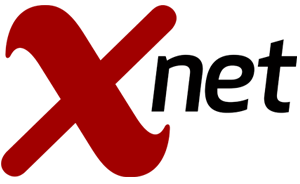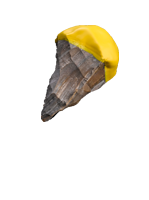HAIFA - Carol Lama of Bethlehem didn't think that she would have the opportunity to complete her MBA close to home.
"In Bethlehem, no universities have an MBA program," the 24-year-old said. "And even if there were a university in the Palestinian Authority with a program, it would be difficult to attend, with travel restrictions and security checkpoints."
Lama chose to participate in Building Business Bridges (BBB), a new English-language MBA course at the University of Haifa that enables Israeli and Palestinian students from Jewish, Muslim, and Christian backgrounds to work towards their degrees together.
"People were surprised that the groups are studying together," she said. "It was a new idea for everyone, that there's a possibility for cooperation."
Joint project
The program, created by the Center for Jewish Arab Economic Development (CJAED) and the Palestinian Media & Development Institute (PMDIP), aims to develop cultural sensitivities between the groups, create an economic understanding of political issues, and push participants to consider the potential for business cooperation in the Middle East and elsewhere. The program is funded by the U.S. government and the European Union.
The first class of 18 students graduates in June.
Right opportunity
"When I saw an ad in the newspaper, I knew that it was exactly what I wanted to do," said Ami Hollander, 45, a self-employed Israeli lawyer from Kfar Netter. "My primary objective was to establish business relationships with Israeli Arabs and Palestinians. This seemed like the right opportunity."
The academic program consisted of eight-week semesters, with classes on Thursdays and Fridays. On Thursday evenings, the group stayed overnight in Haifa to participate in enrichment seminars that touched on economic questions directly relating to the Israeli-Palestinian context. This often meant heated debates on current affairs and cultural issues.
"We had many debates, sometimes staying up until 3 a.m., not including going to the bar afterwards," said Angelique Abboud, 29, of Haifa. "They could be painful when the debates got to be too hot. But it helped everyone understand different aspects of each others' cultures, even if they didn't accept them."
Some sessions that were sensitive but inspiring to the participants included hearing the recollections of the father of one of the Palestinian students about what took place in his village during the 1948 war, watching video testimony of the late mother of one of the students who had been a Holocaust survivor, and meeting Israeli pilots who had refused to strike civilian areas in the Palestinian Authority.
The escalation of political violence between Israelis and Palestinians also coincided with the course of the program, causing some occasional tensions.
"Suicide bomb attacks, targeted killings, the death of Arafat - these issues were immediately reflected in group dynamics and discussion," Hollander said. "But we got over it and continued to be friends."
Making connections
The program included trips to Paris, Brussels, and Luxembourg, in which participants met representatives from the business world, political organizations and more.
"Making contacts in Europe was important," said participant Zuhair Nara, 34, who is the legal advisor to the city of Nazareth. "We made our cases in front of people who might be surprised to see Israeli and Palestinians studying together for months and months. Many Europeans don't know about the everyday life of Palestinian people, and it is important to show the human face of this group. We are modern, we can speak English, we can excel in our studies, and we can have fun."
The group members also became close friends at home, inviting each other to family gatherings and informal outings.
"We've been less successful in business ideas than in communicating and having fun," Nara said. "We've been bridging the gaps between groups and rebutting stereotypes."
Tough selection
The course is rigorous academically, and applicants must meet both the requirements of Haifa University and of the program. Candidates also must be approved for security purposes and travel permits.
Tali Dowek, one of the program directors, says there are a large number of applicants from the Palestinian Authority.
"Palestinians don't have a lot of choices for a university education," she said. "Birzeit University is one of the only universities in the Palestinian Authority that offers an MBA. Many business students have already completed their BA there, and they'd like to earn an MBA elsewhere. Some cannot afford to study abroad for an MBA. Few can study in Israel because of security and travel restrictions, as well as Hebrew language barriers."
Ideas for the future
This year's graduates have considered various future collaborative projects, such as an IT consulting firm, a media and production company for Israeli Arabs, and a bicycle factory in the Atarot industrial zone near Jerusalem.
Hollander says a bicycle is a symbol of mutual understanding and cooperation.
"A bicycle is an environmentally friendly product that doesn't shoot people. You can only do good things when you ride a bicycle," he said.


















